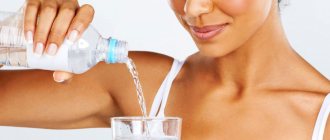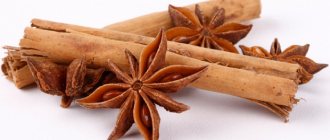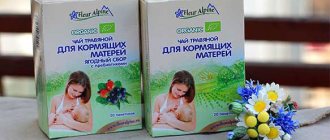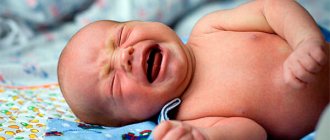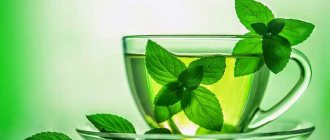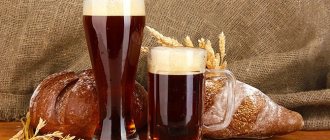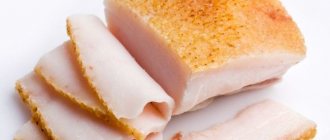Alcohol-free is a product that is similar in appearance and taste to regular beer. It is produced in a different, more complex way, which also leads to a higher price. They came up with non-alcoholic beer for people who, for some reason, cannot drink a traditional drink. These could be drivers, teenagers, pregnant and lactating women.
Can I drink while breastfeeding?
Already during pregnancy, a woman’s usual lifestyle changes, but what about the postpartum period? Many questions require answers: what can you eat after a caesarean section, what can you do and what can’t you do after childbirth? How can I quickly return to my previous physical parameters? Is it possible, for example, to dye my hair while breastfeeding? How will this affect the child? Some of these questions have only one answer, while others require multiple factors to be analyzed.
The answer to the question whether it is possible to drink non-alcoholic beer while breastfeeding is not as clear as, for example, to the question whether a nursing mother can smoke. After all, the drink is non-alcoholic, which means there is no harm. But mom will be able to have a glass of company with everyone and finally relax. Moreover, from all sides a woman is bombarded with stories about various cases when drinking beer while breastfeeding was only beneficial.
To find the answer for yourself, you need to take into account several factors: the age of the child, how much time has passed between consumption and feeding, possible benefits and harms, permissible dosage.
Drinking alcohol during lactation
There are many legends on this topic:
- beer helps increase lactation;
- contains substances and microelements necessary for health;
- beer is a 100% natural product.
To what extent are these statements true? After a successful pregnancy and delivery, the hand sometimes reaches for a glass of an amber drink. For many new mothers, the question - is it possible to drink beer while breastfeeding - is far from rhetorical.
Naturally feeding a baby not only places responsibility on the mother, but also forces her to sacrifice her own desires and preferences. There are times when you especially want to relax and sip a glass of beer or drink a glass of dry red wine at the holiday table.
The baby's gastrointestinal tract is sensitive to any changes in the mother's diet. All microbes necessary for the normal functioning of the body are supplied to the baby through breast milk. For this reason, it is strictly prohibited to abuse any alcohol during lactation. There are no special enzymes that contribute to the breakdown of alcohol in the baby’s body. Even a minimal amount of alcohol will harm the baby's health.
And yet, the question of whether it is possible to drink alcohol during lactation causes intense debate among both medical and scientific workers. They did not reach an agreement: some are sure that a glass of beer will not harm, while others are afraid: even non-alcoholic beer can lead to delays in the development of a child .
Impact on the mother's body
After consumption, the intoxicating drink passes from the digestive tract into the stomach, and then into the intestines, in the upper section of which the alcohol is absorbed. It can be detected in the blood within a time interval of thirty minutes to one and a half hours, depending on whether the drink was consumed on an empty stomach or not.
After alcohol enters the bloodstream, it ends up in the mother's breast milk. Purification of mother's milk and blood occurs after the breakdown of ethanol. The removal procedure depends on characteristics such as the woman’s height, weight and the strength of the drink consumed.
Alcohol concentration in milk
When drinking alcohol on an empty stomach, it will enter the milk within thirty minutes or an hour, and if alcohol enters the body with food, after 1-1.5 hours.
The process of removing a portion of alcohol takes from two to three hours if the nursing woman weighs 50-55 kg. Remember: 1 serving of wine is 150 ml, and 1 serving of beer is 330 ml. Alcohol of a higher degree is eliminated in about 12-13 hours.
All doctors recommend abstaining from drinking alcohol, with the exception of low-alcohol or non-alcoholic drinks. But do not forget that the safe dose for an infant is not known for certain, since it depends on many individual factors.
Effect of brewer's yeast
Brewer's yeast during breastfeeding has a beneficial effect on the baby's bones and teeth due to the vitamin D it contains, therefore, if mommy really wants to drink a glass of “amber”, let her drink it, but not earlier than 5-6 hours before feeding. Vitamin D can also be obtained from foods such as fish, oatmeal, milk, kefir, and fermented baked milk.
The myth about improving lactation
Most breastfeeding mothers claim that beer stimulates the formation of milk, it becomes more, and the baby sucks better and sleeps more soundly. Is this statement true?
It's no secret that beer contains ethyl alcohol, and it tends to lower the level of the hormone oxytocin, which is responsible for milk production. After ingesting alcohol, the hormone level decreases, the flow of milk stops, and it is difficult for the baby to suckle at the breast. The child gets tired, is not satisfied with milk and falls asleep hungry under the influence of alcohol.
It seems to a young mother that her breasts are full of milk, but this is a mistaken opinion. In fact, it turns out that the beer drink simply accumulates in the soft tissues and leads to their swelling. Thus, increasing the amount of milk is a common self-suggestion.
Alcohol inhibits lactation and depresses the child’s nervous system. Until the baby reaches the age of 3 months, his body is not protected, he cannot yet filter out harmful substances on his own, and various impurities that are part of the intoxicating drink affect the further development and formation of the child.
Alcohol will completely disappear from milk when its level in the blood decreases, so pumping a new mother will not help . But the question of whether to drink alcohol during lactation and how much remains on the mother’s conscience .
From what day after birth can it be introduced into the diet?
If a child is breastfed, then until six months he does not receive any more complementary foods. The baby eats often, which means that virtually any product consumed by the mother also affects the child’s body. Therefore, before switching to the first complementary foods while breastfeeding, a woman needs to especially carefully monitor her diet.
Important! The younger the baby, the more acutely he will react to any changes in the composition of milk. The minimum age for a baby to introduce new foods into the mother's diet while breastfeeding is 3 months.
Harmful substances
Since the manufacturing technologies for regular and non-alcoholic versions are similar, but the non-alcoholic version contains the same additives and preservatives.
- Sodium benzoate - used to increase shelf life and enhance color. It may cause allergies. The carcinogenic effect of this substance has been proven.
- Cobalt is a foaming agent. When accumulated in the body, it can impair the functions of the heart and digestive organs.
- Fructose-glucose syrup is a flavor enhancer. Increases blood sugar and insulin levels, promotes weight gain.
- And the main thing that can harm an infant is ethyl alcohol.
- Increased diuresis and decreased amount of potassium in the blood. This leads to disturbances in the functioning of the heart and kidneys.
- Decreased breast milk production
- Increased appetite and weight gain
- The occurrence of headaches
- Decreased concentration
Many women abstain from alcohol during pregnancy or replace it with non-alcoholic beer. This is advisable, since the teratogenic effect of ethanol on the fetus has been proven. When consuming low- and non-alcoholic analogues, the concentration of alcohol in the blood is so low that it does not penetrate the hematoplacental barrier and does not harm the unborn child. However, after birth, the risk for the child increases, since much more alcohol penetrates through the epithelium of the mammary gland than through the placenta.
- Lethargy
- Tearfulness and irritability
- Developmental delay
- Poor weight gain
- Decreased immunity
- Allergic reactions
- Digestive disorders: dysbiosis, colic
- Liver diseases
Alcohol has the same range of negative effects on a child’s body as it does on an adult. But the baby’s enzyme systems and internal organs are not yet working at full capacity and cannot neutralize harmful substances. Therefore, a tiny dose of ethanol is enough for a child to be poisoned.
Is there any benefit for mother and child?
Beer is not an essential product for either mother or baby. But here, as during pregnancy, the craving for a foamy drink is justified by the lack of B vitamins, and by the fact that a small amount will not cause harm. Or maybe there will even be some benefit.
So, is there any benefit from non-alcoholic beer and for whom:
- They say that a foamy yeast-based drink improves lactation and increases the amount of milk. However, this statement has not been proven by doctors and appears to be simply a myth. A reliable and proven means of stimulating lactation is to put the baby to the breast as often as possible and feed him on demand.
- For some mothers, drinking a glass means relaxing, relieving stress, becoming more joyful, and taking a break from daily worries. And this, of course, is a plus. But it’s still worth trying to relax first using other methods: putting off the endless household routine for an hour or two, asking relatives to look after the child, and taking care of yourself. You can take a bath, watch your favorite movie, listen to music or go to the hairdresser. There will be many benefits from these procedures, but no harm.
- Beer actually contains useful substances: cobalamin, pyridoxine, folic and pantothenic acids, riboflavin and others. But after consumption, their quantity in breast milk is so small that the benefit can be considered purely conditional.
Breastfeeding and beer
I am very concerned about this question: breastfeeding and beer . Is it possible? Some publications contain recommendations that to increase lactation you should drink beer or brewer's yeast . Can drinking beer negatively affect a child's health? PS Sometimes you really want beer .
published 28/11/2006 13:53 updated 26/12/2018 - Breastfeeding
Answered by Komarovsky E. O.
Quite possible. At the very least, there should be no talk of any categorical ban. beer production process involves the use of only natural ingredients ( brewer's yeast , hops, barley). This eliminates the special risk of allergic reactions. A significant plus is a large amount of B vitamins. A significant minus is the presence of alcohol. The latter requires a sense of proportion, but a glass of beer that a woman drinks because she really wants it will not do much harm to anyone. It is only important to understand: talk that beer can significantly increase milk production is purely talk. The effectiveness of this method of stimulating lactation has not been proven by anyone. Thus, if a breastfeeding woman really, really wants to drink beer , she can easily afford it. However, you should not use canned or other beer containing preservatives. It is quite obvious that you should not consume strong varieties. There is a choice. The ideal option is non-alcoholic bottled beer . Killing a lot of birds with one stone without side effects. Let me emphasize once again: drinking beer by a nursing woman has both pros and cons. What will outweigh is a moot point. But you should only conduct these experiments when you really really want to. What if you don’t want to? Well, thank God. The less experimentation you do during breastfeeding, the better it will be for both you and your baby.
What is the danger
Non-alcoholic beer is not that “alcohol-free.” Manufacturers, on average, indicate about 0.5% ethyl alcohol in the drink.
Some mothers think that if they drink and then express milk, then the next “portion” will be safe. However, while the substance continues to remain in the woman’s blood, it also enters the milk. Therefore, with such feeding, the child will definitely receive his own, albeit small, dose of harmful substances. One portion of alcohol is removed from the blood within 2-3 hours. That is, if the baby is put to the breast with a break of three hours or more after drinking a glass, then such feeding will be safer.
Another danger is that non-alcoholic beer, like any carbonated drink, can cause colic, increased gas production and bloating in the baby.
Beer for milk lactation in nursing women
The fact that non-alcoholic beer increases the amount of breast milk in a woman is a myth; lactation can be enhanced by drinking herbal tea with milk.
In Japan, they produce non-alcoholic beer, specially intended for young mothers, which, according to experts, increases the amount of breast milk.
Maybe in Japan there is such beer, but here, in the post-Soviet space, non-alcoholic beer does not have such properties . Some scientists and doctors prove the opposite, but no one has yet confirmed that beer stimulates lactation.
For this purpose, there are special teas , drunk warm, which enhance lactation.
Tips for choosing
If a woman nevertheless decides that a small amount will not cause harm, then she needs to choose a product with the latest expiration date, from a well-known manufacturer that monitors its reputation.
Non-alcoholic variations from different manufacturers contain different amounts of alcohol, from 0.2 to 1%. Therefore, carefully look at the label and choose a drink with the lowest alcohol content.
Calorie content and composition
The production of a non-alcoholic drink is a little more complicated than its counterpart containing alcohol, which explains its price and some difference in taste. A product without alcohol is created in different ways:
- stopping or eliminating fermentation (lower temperatures or replacing sugars with non-fermenting analogues);
- evaporating ethanol;
- membrane method - without heating.
All varieties of the product have a different taste, which is formed during the cooking process. What they have in common is their composition and calorie content (average data):
- it contains less than 30 kcal per 100 ml;
- no fats or proteins, only 4.5 g of carbohydrates per 100 grams;
- consists of hops, malt, water and maltose molasses;
- contains vitamin B, iron and some other minerals;
- There is no more alcohol in it than in kvass (maximum - 1%).
If you use this drink wisely, without exceeding the limit and not every day, then it will only bring benefits.
How often and in what quantity is it permissible to use?
There is such a thing as “minimal harm”. When drinking non-alcoholic beer, we are not talking about a useful dosage, but only about the amount that will not be harmful or minimally harmful for the child.
Safety rules for use will be as follows:
- Feed your baby in advance, preferably before bedtime;
- do not feed 2-3 hours after drinking;
- do not drink on an empty stomach, because this will increase the time it takes for beer to be eliminated from the body;
- Don’t make drinking a regular habit;
- the volume drunk at one time should not exceed 350-500 ml.
How long after drinking beer can you feed your baby?
After your mother drinks non-alcoholic beer, breastfeeding can begin no earlier than 12 hours later.
If you were used to drinking beer before pregnancy, and after the birth of your child you also decided to drink non-alcoholic beer, then before you do this, you need to prepare so that the child does not suffer from at your whim.
How to do it?
- You need to express milk for several feedings.
- After drinking beer, the baby should not be fed breast milk for 12 to 24 hours.
- You should not drink any beer if your baby is under 3 months old.
- Carefully study the composition of the beer.
- Drink only fresh beer.
- Before drinking, release the gas from the beer, and drink no more than 0.5 liters.
- Don't drink beer more than 2 times a week.
- If your baby shows signs of an allergy after drinking non-alcoholic beer, you should urgently stop drinking alcoholic and low-alcohol drinks.
What happens if you don't know what to do?
Even small doses of alcohol can form an addiction if they enter the body regularly. Therefore, with the systematic use of a conditionally non-alcoholic drink, the mother gradually develops tolerance to alcohol in the baby. And even if this does not cause immediate harm, it can come back to haunt you in adolescence.
Possible consequences of regular use:
- harm to the liver;
- frequent pathological drowsiness, too deep sleep;
- respiratory and heart rhythm disturbances;
- disruption of the digestive organs;
- alcohol is a food provocateur for a child and can lead to allergic reactions: skin rashes, redness, gastrointestinal upset.
Another case: when the mother does not drink systematically, but rarely, but in large volumes. The rule here is: the more you drink, the stronger the degree. And then all these degrees pass into breast milk and further into the circulatory, nervous and digestive systems of the fragile child’s body.
Of course, if a woman drinks non-alcoholic beer while breastfeeding, the consequences will not be terrifying. But even if they are simply not very good, how compatible is the risk of harming the child with a mother’s pleasure? In this case, as with any other food or drink while breastfeeding, you should act according to the proverb: too much of anything is harmful to health.
Doctor Komarovsky answers. (I found an article about GW and beer)
Breastfeeding and beer.
I am very concerned about this question: breastfeeding and beer. Is it possible? Some publications contain recommendations that to increase lactation you should drink beer or brewer's yeast. Can drinking beer negatively affect a child's health? PS Sometimes you really want beer.
Answered by Komarovsky E. O.
Quite possible. At the very least, there should be no talk of any categorical ban. The beer production process involves the use of only natural ingredients (brewer's yeast, hops, barley). This eliminates the special risk of allergic reactions. A significant plus is a large amount of B vitamins. A significant minus is the presence of alcohol. The latter requires a sense of proportion, but a glass of beer that a woman drinks because she really wants it won’t do much harm to anyone. It is only important to understand: talk that beer can significantly increase milk production is purely talk. The effectiveness of this method of stimulating lactation has not been proven by anyone. Thus, if a breastfeeding woman really, really wants to drink beer, she can easily afford it. However, you should not use canned or other beer options that contain preservatives. It is quite obvious that you should not consume strong varieties. There is a choice. The ideal option is non-alcoholic bottled beer. Killing a lot of birds with one stone without side effects. Let me emphasize once again: drinking beer by a nursing woman has both pros and cons. What will outweigh is a moot point. But you should only conduct these experiments when you really really want to. What if you don’t want to? Well, thank God. The less experimentation you do during breastfeeding, the better it will be for both you and your baby.
Source
Video about non-alcoholic beer
In a short video, a narcologist expresses a professional opinion about this drink, argues his own point of view on the harmfulness of such use,
Nursing mothers may have their own reasons to drink: for example, birthdays or New Year's holidays. On the other hand, during the year after giving birth, it is easier to completely give up a potentially harmful drink than to calculate the intervals of time, pump and think about how this will affect the child’s health.
Opinions about whether it is possible to drink non-alcoholic beer while breastfeeding vary widely. What do you think? Write your pros or cons in the comments below.
Is beer good for breastfeeding?
The myth about the benefits of beer for increasing lactation is also dispelled by other doctors. They think it's more like self-hypnosis. The point of view of individual mothers does not coincide with the opinion of doctors. Nursing mothers give examples of using teas for lactation, which do not have such a miraculous effect on the appearance of milk as beer. Is it possible to drink beer and expect an increase in lactation?
How can you explain the mother's impression of the arrival of milk after drinking it:
- This drink tends to accumulate in tissues, leading them to swelling and stretching. This causes the mother to associate milk with more milk.
- The ability of beer to retain fluid in the body also extends to breast milk. This forces the baby to exert considerable effort during feeding.
Does it contain alcohol
Non-alcoholic beer, contrary to its name, still contains alcohol. The right to be called non-alcoholic is given by a significantly reduced amount of alcohol compared to the usual version - 0.3-1.5%.
According to the list of ingredients, non-alcoholic beer is completely identical to regular beer, the amount of alcohol is reduced by artificial methods:
- by evaporation;
- with membrane dialysis;
- by reducing the intensity of fermentation.
Recently, a completely non-alcoholic drink that does not contain ethyl alcohol has begun to appear on the shelves. It is produced using the latest technology, without the addition of alcohols at the initial stage of fermentation.
If you want to minimize the risk for your baby, it is better to drink beer exclusively in its non-alcoholic form and not too often.
Why do you want beer when you didn’t want it before?
Sometimes women are surprised by a strong desire to drink. After all, she was not a drinker before. Then she frantically begins to look for advice on whether a nursing mother can drink beer.
Most likely, this desire is caused by a lack of certain vitamins in the woman’s body. This high-quality product contains brewer's yeast. They create a bready smell that the mother associates with beneficial vitamins B1, B2 and D2. Therefore, you should not buy suitable beer during lactation, but start eating foods rich in these elements. Usually, copious amounts of such food eliminate the desire to buy non-alcoholic beer while breastfeeding.
In extreme cases, this drink can be replaced with live kvass or a fermented milk product, which also contains a small amount of alcohol. This healthy food produces the same effect, and a nursing mother will not have to buy non-alcoholic beer.
